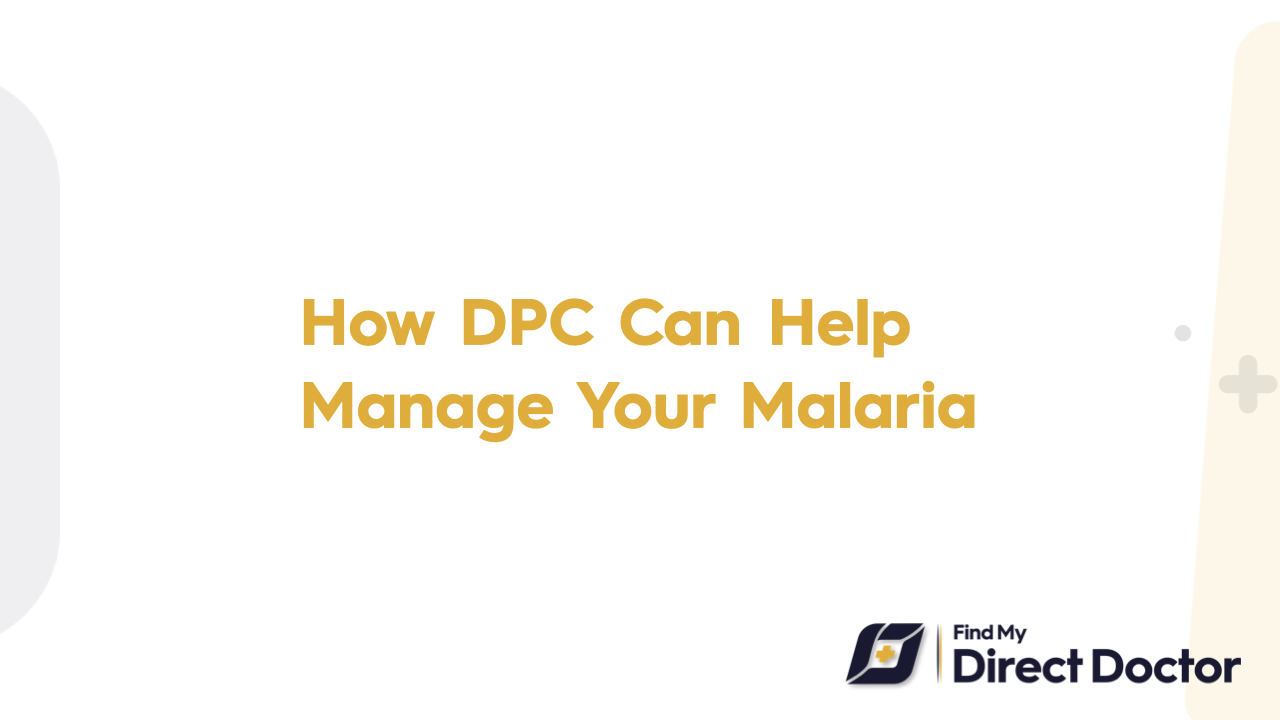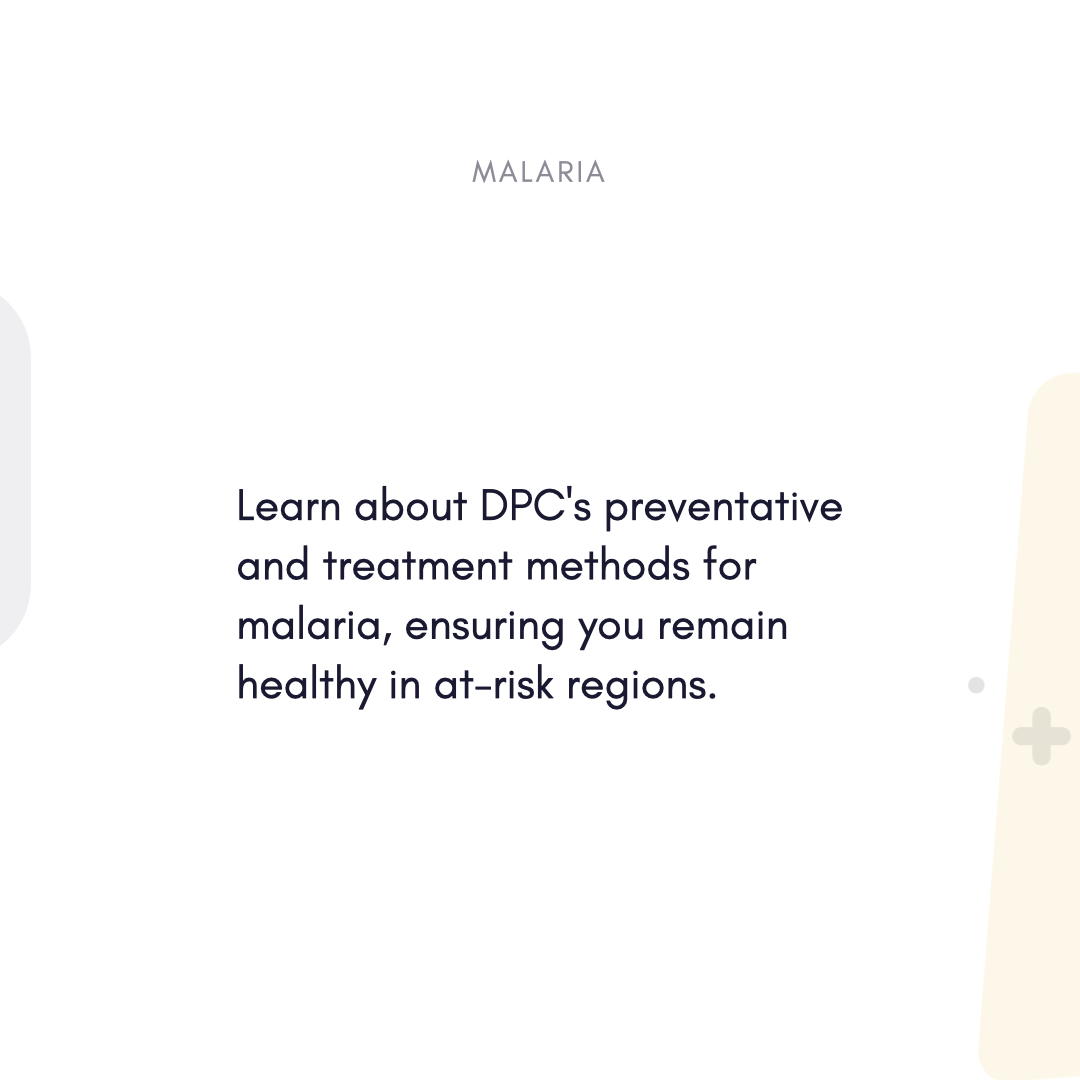Malaria and Direct Primary Care (DPC): Rapid, Personalized Care for a Global Threat
If you have ever returned from a tropical vacation with a high fever, chills, and body aches, you are aware of the fear of malaria, a mosquito-borne parasite still claimed to cause 627,000 deaths yearly. For visitors, expatriates, and those living in endemic areas, early diagnosis and treatment are absolutely vital. Combining fast testing, reasonably priced antimesers, and preventative strategies—no insurance delays or financial surprises—Direct Primary Care (DPC) provides a lifeline. Let us investigate this.

Recognizing Malaria
Caused by Plasmonium parasites (P. falciparum, vivax, etc.), malaria shows in phases:
- Simple: not complicated headache, cyclic fever, tiredness.
- Severe: anemia, organ failure, cerebral malaria.
Groups at high risk:
- Travellers to South America, Southeast Asia, sub-Saharan Africa.
- Pregnant women, small children, immune compromised people.
Long-term hazards devoid of care:
- Relapse: P. vivax/ovale hypnozoites.
- Kidney damage; chronic anemia.
DPC Changes How Controlling Malaria
Under the membership concept known as Direct Primary Care (DPC), patients pay a monthly fee—usually 50–150 USD—for unlimited access to their provider. For malaria sufferers, this means care catered to your travel history, no surprise bills, and no waiting days for test results.
1. Fast Treatment and Diagnosis
Offering WHO recommendations, DPC providers:
- In-clinic same-day rapid tests: blood smears or RDTs (antigen detection).
- For uncomplicated cases, artemether-lumefantrine (Coartem); IV artesunate coordination for severe malaria.
- After G6PD testing, primaquine/tafenoquine clears P. vivax/ovale.
2. Preventive Programs and Instruction
- Based on destination resistance patterns, pre-travel counseling includes tailored chemoprophylactic (doxycycline, atovaquone-proguanil).
- Deet, permethrin-treated clothing, bed nets help avoid mosquitoes.
- Post-travel observation: Test again for delayed symptoms.
3. Reasonably Priceless, Open Treatment
- Discounted drugs: Coartem for 50 USD/course instead of 200+ USD retail.
- Low-cost labs: 300 USD via insurance vs malaria PCR-75 USD.
- 24/7 access: urgent advice for off-hour fever spikes.
Key DPC Benefits for Malaria Patients
- Starting treatment within hours of symptom start, same-day action helps stop progression.
- Savings: Steer clear of 1,000+ USD ER bills related to severe malaria treatments.
- Plans for pre-travel for adventurers, foreigners, and aid workers worldwide.
Individualized DPC Malaria Control
1. Getting Ready for Travel:
Target-specific preventive measures:
- Areas sensitive to chloroquine: weekly dose.
- Daily doxycycline or atovaquone-proguanil (Malarone) in resistant areas
- Children living in endemic areas should follow RTS,S/AS01 (mosquirix) vaccination recommendations.
2. Follow-Up and Acute Care
- Simple cases: Three-day Coartem program with hydration and nausea relief.
- If severe malaria calls for a coordinated IV artesunate and ICU transfer, do it.
- Testing G6PD before primaquine helps prevent hemolysis.
3. Vigilance After Travel
- For P. vivax, repeat RDTs up to a year after exposure.
- CBCs 2–4 weeks following treatment check anemia.
- Mental health support: Talk about post-malaria anxiety or exhaustion.
Personal Success Stories from Real Life
- Case 1: After a positive RDT, Lena, 32, a Uganda volunteer, avoided severe malaria with DPC's same-day Coartem prescription.
- Case 2: After G6PD testing cleared him for hypnozoite treatment, 45-year-old Ahmed avoided relapse with DPC-guided primaquine.
Common Questions: DPC and Malaria
- Q: Is DPC able to provide malaria prophylactic advice?
- A: Indeed! DPC providers customize programs based on your location and medical past.
- Q: Is DPC within expats' budgets?
- A: Certainly. Frequently under 100 USD/month, members save on travel meds, tests, and visits.
- Q: Should a specialist be needed, what then?
- A: DPC doctors coordinate discounted referrals for complicated infectious diseases.
The Reasons DPC Works for Malaria
The speed and accessibility of the DPC model are literally lifesaver since:
- Response 24/7: Treat fever day or night right away.
- Pre-travel preparation: With customised prophylactic treatment, completely avoid malaria.
- Clear cost: Fixed fees stop financial shock in times of crisis.
Travel Confidently Using the Malaria Expertise of DPC.
Malaria need not shorten your travels. Using DPC guarantees you a partner who provides quick testing, reasonably priced treatment, and preventative strategies—ensuring you safely explores the world. From pre-travel plans to post-trip care, DPC helps you to remain fearless and healthy.






